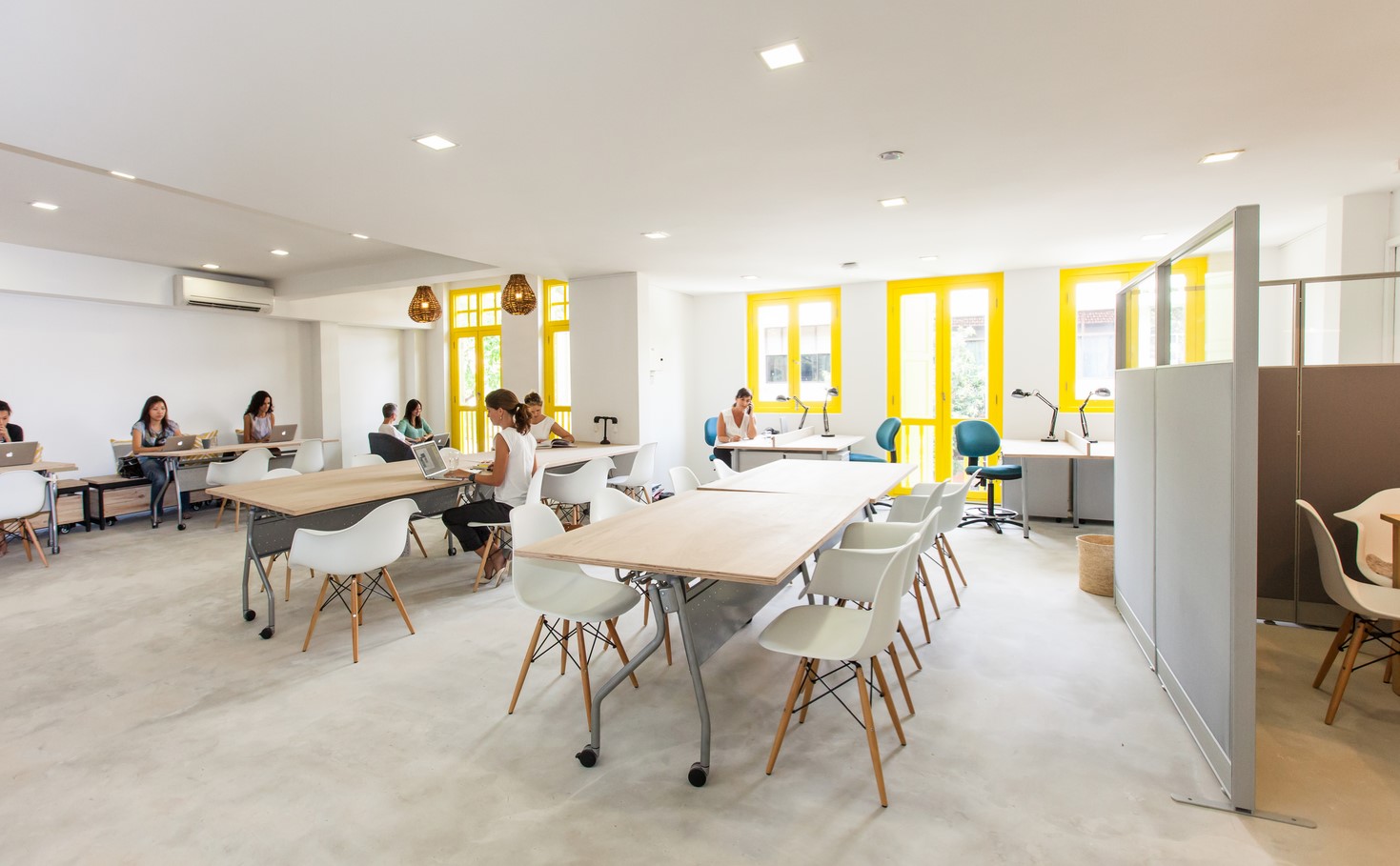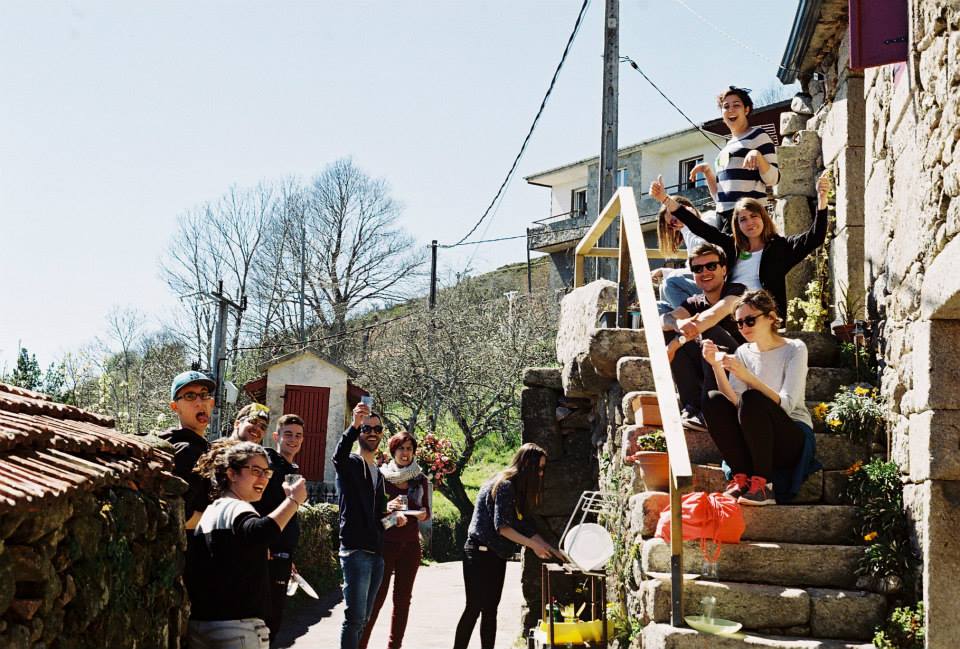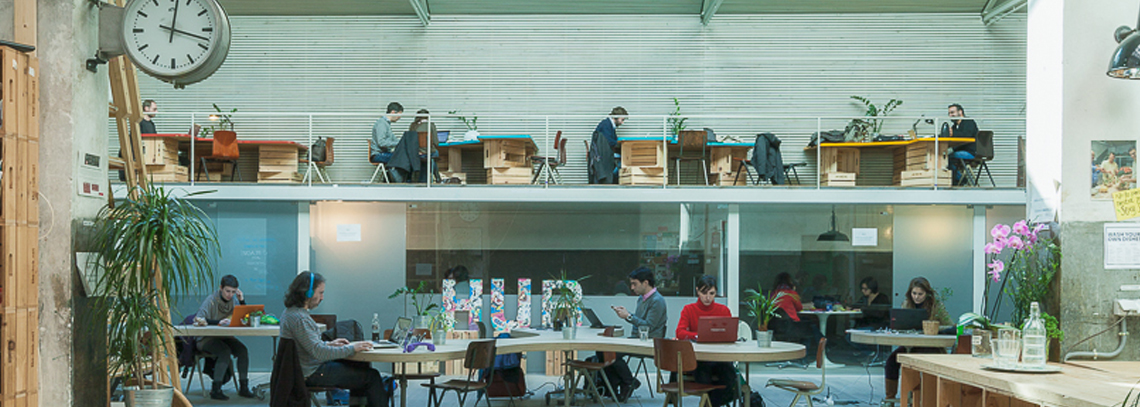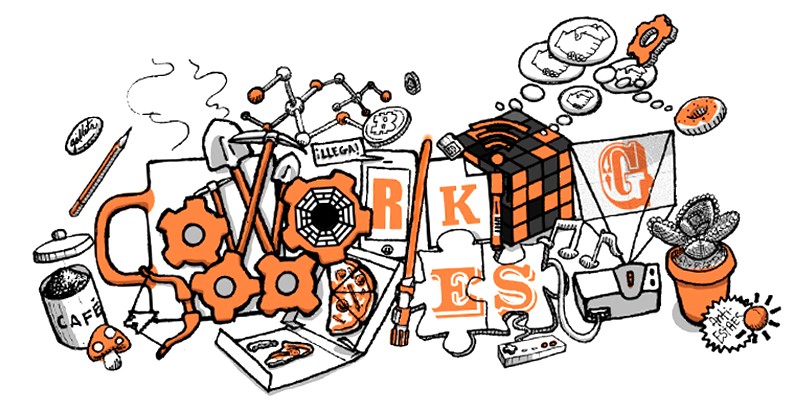Coworking Specialization
The coworking ecosystem is very diverse, which is what makes it so rich. One of the trends that we are noticing during recent years is coworking specialization. The building of models structured around collaboration and community can be found in coworking spaces, markerspaces, hackerspaces, fablabs, collaborative spaces, etc. We are also seeing increasing interest from academics who publish studies on the subject. In an article about spaces and collaboration, Ignasi Capdevila studies what he calls “Localized spaces of collaborative innovation” (LSCI). Capdevila defines an LSCI as a space with the following characteristics:
- They are spaces open to the general public
- They have a defined focus and goal collectively agreed by their members
- They share information, and tools among the members and they encourage the free sharing of knowledge
- Coworking spaces for women entrepreneurs: There are several spaces and networks of spaces aimed at this community. In the United States HeraHub has been building a nationwide network of spaces that provides support to female entrepreneurs. Felena Hanson, network co-founder, explains how to build a community that delivers value in this video. Other examples in the US are The Hive Philly and Posh Coworking. In Asia, Woolf Works supports women entrepreneurs in Singapore.

- Culinary spaces: For some professions, gaining access to logistics and resources can be extremely costly. Spaces like Mess Hall DC and River Forest Kitchen offer budding chefs the chance to rent a professional kitchen and receive mentoring from experts in the sector.
- Coliving + Coworking: There are more and more initiatives that offer the chance of living and working under the same roof. Many are found in rural areas or idyllic places that provide a mixture of work and peace far from big cities. Since 2014, more than 500 people from 20 different countries have passed through the space Sende. Soon Sun and Co is set to open, which is a space located in Javea that boasts a good climate, beach and coworking.

- Spaces with childcare: It's not easy to get the work/family-life balance right and coworkers are commonly faced with this issue. Programmes such as NextKids promoted by the network of spaces NextSpace, is a professional environment that also offers personalised carespace for the little ones. Other examples are Bubs & Boardsrooms or Nido, which combines work space and onsite childminding. Deskmag offers some great tips on coworking with children in this article.
- Shopping centres and coworking spaces: The coworking space, Bespoke, recently opened its doors in Westfield centre, in the middle of Market St in San Francisco. It has 3.500 m2 for coworking, events and demos. Bespoke mainly focusses on the retail industry and technology.
- Global networks: Impact Hub, which currently has +63 spaces throughout the world, has the objective of making a positive impact by supporting social projects and entrepreneurs.

- MakerSpaces: Having access to a 3D printer, laser cutter, milling machines, etc., can be very costly. MakerSpaces do not only give members access to these tools, they can form part of a community that promotes learning, knowledge sharing and collaboration. Jamie Leben explains the maker movement in this TEDx talk. Makerbay and MakeSpace Madrid are examples of such.
- Hackerspaces: The hackerspace concept appeared in Europe in the C-Base space in Berlin in 1995. It essentially consists of a group of programmers sharing a physical space. Mitch Altman talks about the hackerspace movement throughout the world in this TEDx talk. Examples are Hackerlab and NYCResistor. You can find a full list of hackerspaces around the world.
- Neighborhood productive spaces: “Get things done” is Cove's, motto, which is a network of spaces that has recently closed a Series A round of $2.8m. Its founder, Adam Segal, defines the network of spaces as a neighbourhood service, comparing it with a gym or café.

What do you think about coworking specialization? Do you know of any other models?
Related stories
Is Hot Desking Right for Your Business? Pros & Cons of Flexible Workspaces
Hot desking has become one of the go-to solutions for businesses seeking flexibility and cost efficiency. It supports hybrid working models, boosts collaboration and reduces office overheads. But hot desking isn’t right for everyone.
Sustainable Wokplace Design: 5 Best Practices for 2025
The topic of sustainability continues to dominate conversations in the flexible workspace industry.
How to Design an Office to Attract and Retain Top Talent
Discover how a well-designed office can attract and retain top talent. Learn key strategies for creating flexible, community-driven, and wellness-focused workspaces.
4 Ways Tech is Revolutionising the Office
Discover how technology is transforming modern office spaces with cloud flexibility, smart design solutions, virtual reality meetings, and data-driven decision-making. Learn the key trends shaping coworking spaces and enhancing workplace collaboration.
Hybrid Work: How to Attract Your Employees Back to the Office on a Friday
Discover why hybrid work is here to stay and explore effective strategies to attract employees back to the office on Fridays. Learn how collaboration, company culture, and innovative perks can boost productivity and employee satisfaction.
Why You Should Consider a Hybrid Work Strategy
Explore the benefits and strategies of hybrid work in this comprehensive guide. Learn how a flexible work model can boost productivity, improve work-life balance, and attract top talent.
How SMART Goals Can Transform Your Work
Discover how SMART goals can transform your work and boost productivity. Learn the SMART framework and set Specific, Measurable, Achievable, Relevant, and Time-bound goals to achieve professional success.
10 Ways to Encourage Your Employees to Commute to the Office
Discover 10 innovative ways to encourage your employees to commute to the office. Boost productivity, enhance work-life balance, and create a thriving workplace with these practical tips.
Boosting Productivity: 10 Ways to Incentivise Your Team
Boost your team's productivity with these 10 actionable strategies. Embrace flexible working, inclusive values, and professional development to create a motivated and efficient workforce
Flexible Workspaces Management: Simplifying Corporate Success
Working from home is indeed not a new concept, at all! AT&T started to eliminate unused offices in 1991. Three years later, as part of an experiment to explore the extent to which a large organisation could revolutionise the workplace by bringing work to the employees, it had 32,000 employees working from home.

